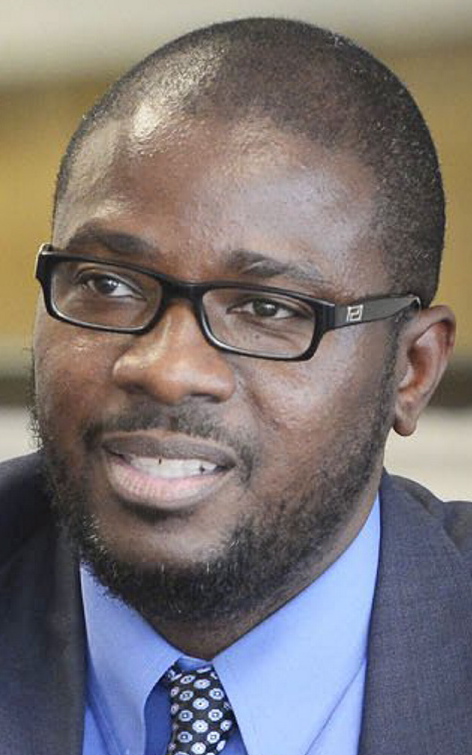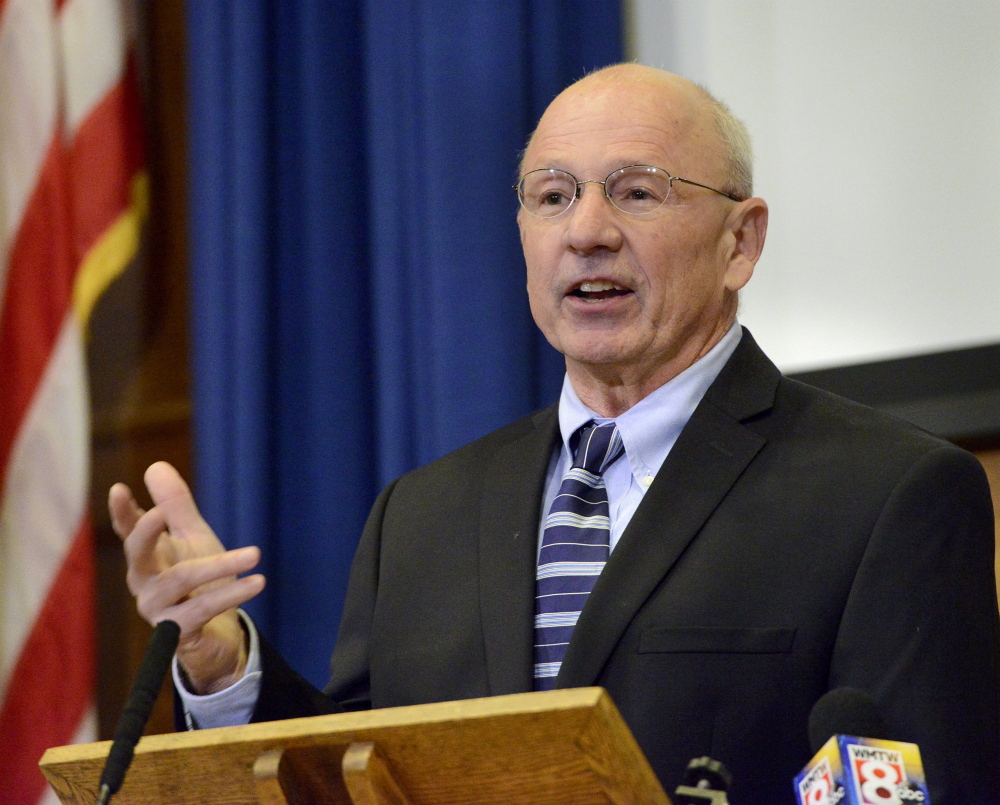Portland Superintendent Emmanuel Caulk said Thursday he is abandoning his plan to offer virtual classes to certain students in the school district beginning this fall.
Caulk’s decision comes after the city’s mayor said he opposed the program, the state’s top education official warned of its financial implications, and School Board members raised numerous questions about it that Caulk had yet to answer.
Caulk said he pulled the program “given the events that have unfolded.”
“I have no intent to move forward with (the virtual instruction program) without the board’s support,” he wrote in an email to School Board members.
Caulk had touted the online instruction program as a way to convince seven students who had enrolled at the state’s first virtual charter school to return to the Portland district, which he said would save almost $50,000 in state education aid.
The program would have been open to students in grades 7-12 and would have used teachers and course work provided by Pearson, the same for-profit vendor that is supplying an online curriculum to the state’s first virtual charter school, Maine Connections Academy, which opened this week.
The state provides $7,000 per student in education aid, which goes to the virtual school if a student enrolls there. For each student lured away from Maine Connections and into Portland’s online program, the district would have paid Pearson $4,250. Other expenses would have pushed the district’s total cost to $5,000 per student in the online program, leaving the remaining $2,000 in state aid to the district, Caulk said.
On Wednesday, Mayor Michael Brennan said he was opposed to the program because it would have had the district partner with a for-profit company to provide teachers and curriculum.
State Education Commissioner Jim Rier had warned that the program could cost the district hundreds of thousands of dollars if opened to all students. A student moving from a regular classroom to the virtual program would cost the district $4,250 a year and generate no additional state aid. And Portland Chief Academic Officer David Galin said this week that the virtual option would have to be offered to all students, not just those who had left for the virtual school.
School Board members questioned the specifics of the program, with some saying they had been given too little time and too few specifics to evaluate it.
Caulk said he would support upcoming legislative efforts by Maine Senate President Justin Alfond, D-Portland, who had a conference call Thursday afternoon with Brennan and Caulk.
Alfond said he planned to bring back two charter school-related bills, both of which failed in the last session. One would create a state-run virtual charter school, and the other would spread the costs of charter schools among all the state’s school districts. Currently, charter schools are funded by state aid that comes from the district where the student lives, so districts near charter schools tend to lose higher amounts of state funding.
“The state charter law is moving on in years and we’re starting to see the effects and you’re starting to see some real patterns,” Alfond said, when asked why the legislation might have a better chance of success in the upcoming session. “I think the patterns will push legislators on both sides of the aisle” to support the measures.
After talking to Alfond, Caulk said he was “assured there was a legislative path forward.”
“In the last 24 hours, this has created a larger issue around the impact of individual districts funding charter schools,” he said. “I think this is going to spur the legislative action that did not come to pass at the end of the legislative session in June.”
A bipartisan group of lawmakers proposed the state-run virtual school, which was modeled on successful state-run virtual charter schools such as those in Vermont and New Hampshire. Gov. Paul LePage vetoed it over a provision that would have frozen the approval of other virtual charter schools while the state-run academy got started.
The idea of having all the state’s school districts contribute an equal amount to fund charter schools also has had broad support, including from members of the Maine Charter School Commission, which oversees the charter schools.
Maine now has six charter schools, which are publicly funded but operate independently of public school districts. The state has a cap of 10 charter schools until 2021.
School Board Chairwoman Sarah Thompson said Thursday she was glad to see the program put on hold.
“It’s not our decision to make, but it’s not a good move to do something where you see there are still so many questions from the board,” Thompson said. “I think that Manny took that into consideration. But I do give him credit for thinking creatively. That’s what we hired him to do.”
Noel K. Gallagher can be contacted at 791-6387 or at:
Send questions/comments to the editors.





Success. Please wait for the page to reload. If the page does not reload within 5 seconds, please refresh the page.
Enter your email and password to access comments.
Hi, to comment on stories you must . This profile is in addition to your subscription and website login.
Already have a commenting profile? .
Invalid username/password.
Please check your email to confirm and complete your registration.
Only subscribers are eligible to post comments. Please subscribe or login first for digital access. Here’s why.
Use the form below to reset your password. When you've submitted your account email, we will send an email with a reset code.